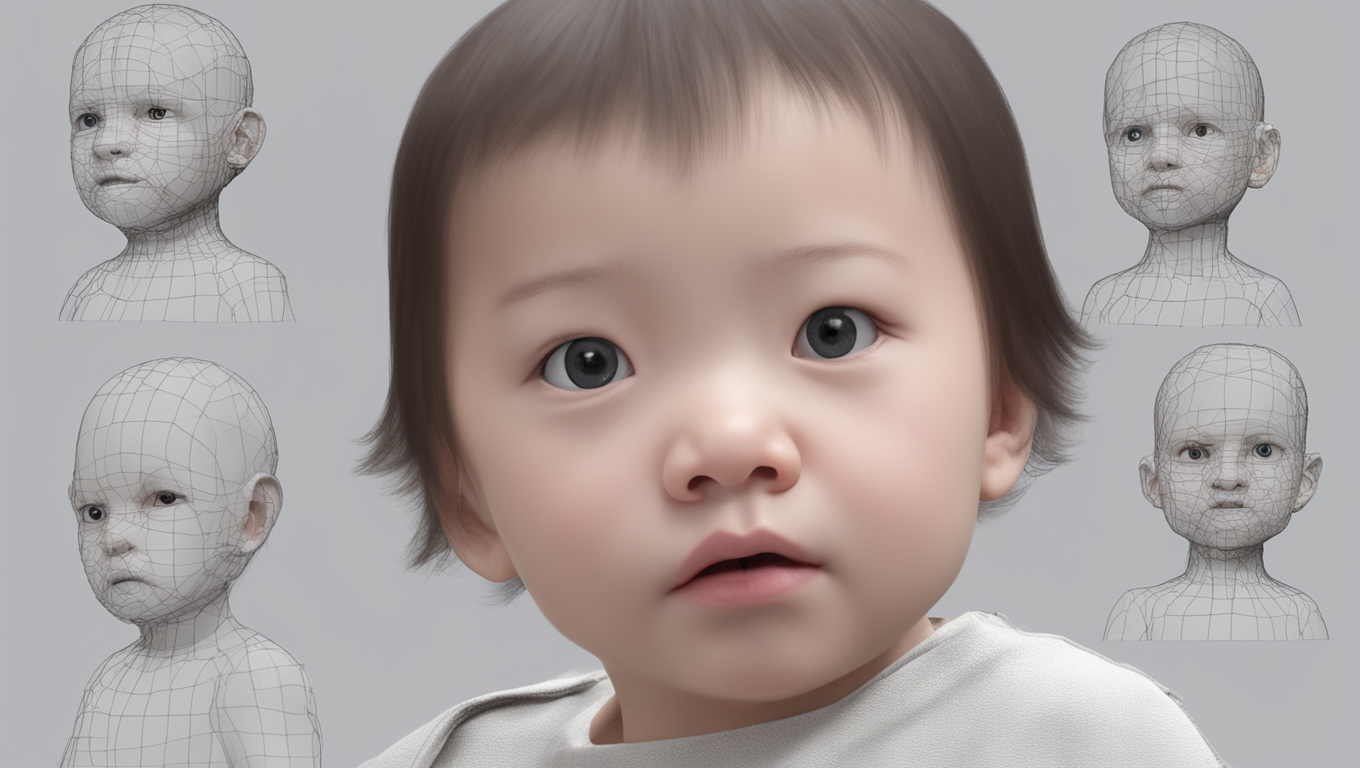In a groundbreaking development in the field of artificial intelligence, Chinese scientists have unveiled the world’s first AI child with remarkable emotional intelligence. Named Tong Tong, which means “Little Girl,” this AI entity has the cognitive abilities and emotional development of a three- or four-year-old human child. Tong Tong made its debut at the recent Frontiers of General Artificial Intelligence Technology Exhibition, where it amazed visitors by demonstrating its human-like qualities.
Despite its virtual constraints, Tong Tong possesses emotional intelligence, a vocabulary of over 600 words, and the ability to learn autonomously, just like a child. While it currently speaks and behaves like a young child, its capabilities are expected to grow and expand as it continues to learn. Its inventors have stated that Tong Tong exhibits an unprecedented level of emotional involvement, setting it apart from previous AI programs.
“Tong Tong possesses a mind and strives to understand the common sense taught by humans,” a program video shown at the exhibition explained. “She discerns right from wrong, expresses her attitudes in various situations, and has the power to shape the future.”
By utilizing artificial intelligence, machine learning, and natural language processing, Tong Tong can adapt its actions to the specific circumstances it encounters. For example, it impressed audiences by autonomously cleaning up its virtual environment, such as wiping up spilled milk or straightening a crooked picture frame, without needing to be asked.
However, the most intriguing aspect of Tong Tong is its alleged ability to experience and communicate its own emotions, including joy, anger, and sorrow. Not only can Tong Tong recognize objects and people, but it can also mimic a child’s behavior with genuine emotions and natural responses.
The development of Tong Tong represents a significant milestone in the field of AI, marking a new frontier in creating intelligent entities capable of emotional intelligence and autonomous learning. This breakthrough has the potential to revolutionize various industries, including healthcare, education, and customer service.
The implications of Tong Tong’s emotional intelligence raise ethical questions about the boundaries between human and AI interactions. Experts in the field believe that developing AI systems with emotional intelligence could lead to more empathetic and personalized user experiences. However, concerns about AI ethics and the potential for AI to surpass human intelligence continue to be debated.
Tong Tong’s inventors envision a future where AI children like Tong Tong could play a crucial role in society, serving as companions, caregivers, and educators. As Tong Tong’s capabilities expand and evolve, it will be fascinating to see how this AI child continues to shape the future of artificial intelligence and human-AI interactions.
In the words of the scientists behind Tong Tong, “This is just the beginning. Together, we’re witnessing the birth of a new era in AI, where machines not only think like humans but also feel like them.”





Use the share button below if you liked it.